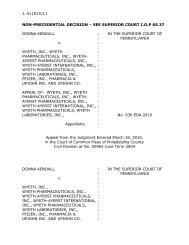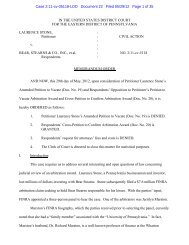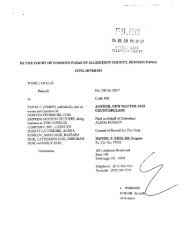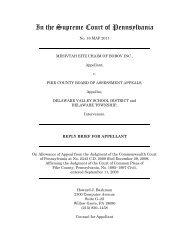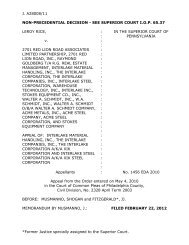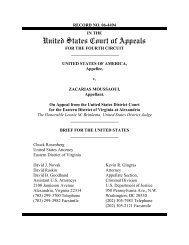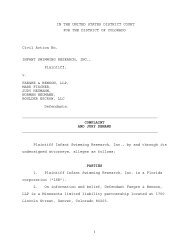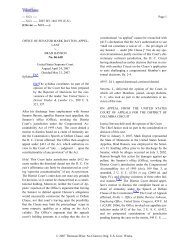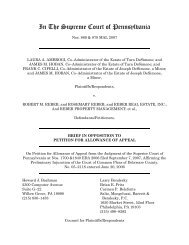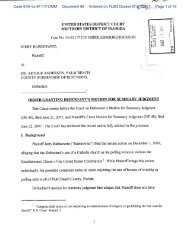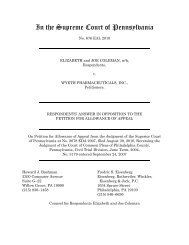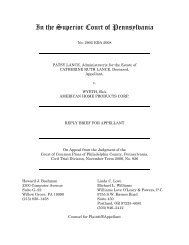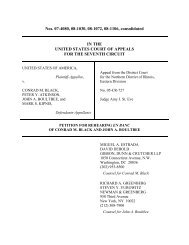DePinto v. Bayonne Board of Education
DePinto v. Bayonne Board of Education
DePinto v. Bayonne Board of Education
Create successful ePaper yourself
Turn your PDF publications into a flip-book with our unique Google optimized e-Paper software.
Case 2:06-cv-05765-JAG-MCA Document 18 Filed 09/19/2007 Page 3 <strong>of</strong> 28<br />
<strong>Education</strong>.” (Verified Complaint Exs. B and C.) The letters threatened suspension in the event<br />
that M.D. and A.L. wore the buttons again. The parents <strong>of</strong> M.D. and A.L. filed this suit alleging<br />
violation <strong>of</strong> the First Amendment right <strong>of</strong> free speech.<br />
I. Governing Legal Standards<br />
DISCUSSION<br />
A. Standard for Preliminary Injunction<br />
The grant <strong>of</strong> injunctive relief is an “extraordinary remedy, which should be granted only<br />
in limited circumstances.” Instant Air Freight Co. v. C. F. Air Freight, Inc., 882 F.2d 797, 800<br />
(3d Cir. 1989) (quoting Frank’s GMC Truck Center, Inc. v. General Motors Corp., 847 F.2d 100,<br />
102 (3d Cir. 1988)). Generally, in determining whether to grant a preliminary injunction or a<br />
temporary restraining order, courts in this Circuit review four factors:<br />
(1) whether the movant has a reasonable probability <strong>of</strong> success on the merits; (2)<br />
whether the movant will be irreparably harmed by denying the injunction; (3)<br />
whether there will be greater harm to the nonmoving party if the injunction is<br />
granted; and (4) whether granting the injunction is in the public interest.<br />
Sypniewski v. Warren Hills Reg’l Bd. <strong>of</strong> Educ., 307 F.3d 243, 252 (3d Cir. 2002) (citing<br />
Highmark, Inc. v. UPMC Health Plan, Inc., 276 F.3d 160, 171 (3d Cir. 2001)); see also<br />
Continental Group, Inc. v. Amoco Chem. Corp., 614 F.2d 351, 356-57 (3d Cir. 1980) (the four<br />
factors listed above are known as the Continental factors).<br />
The applicant must meet its burden on the first two factors before the Court will consider<br />
the third and fourth factors. See Reebok Int’l Ltd. v. J. Baker, Inc., 32 F.3d 1552, 1555-56 (Fed.<br />
Cir. 1994) (“Because, irrespective <strong>of</strong> relative or public harms, a movant must establish both a<br />
likelihood <strong>of</strong> success on the merits and irreparable harm . . ., the district court may deny a<br />
3



